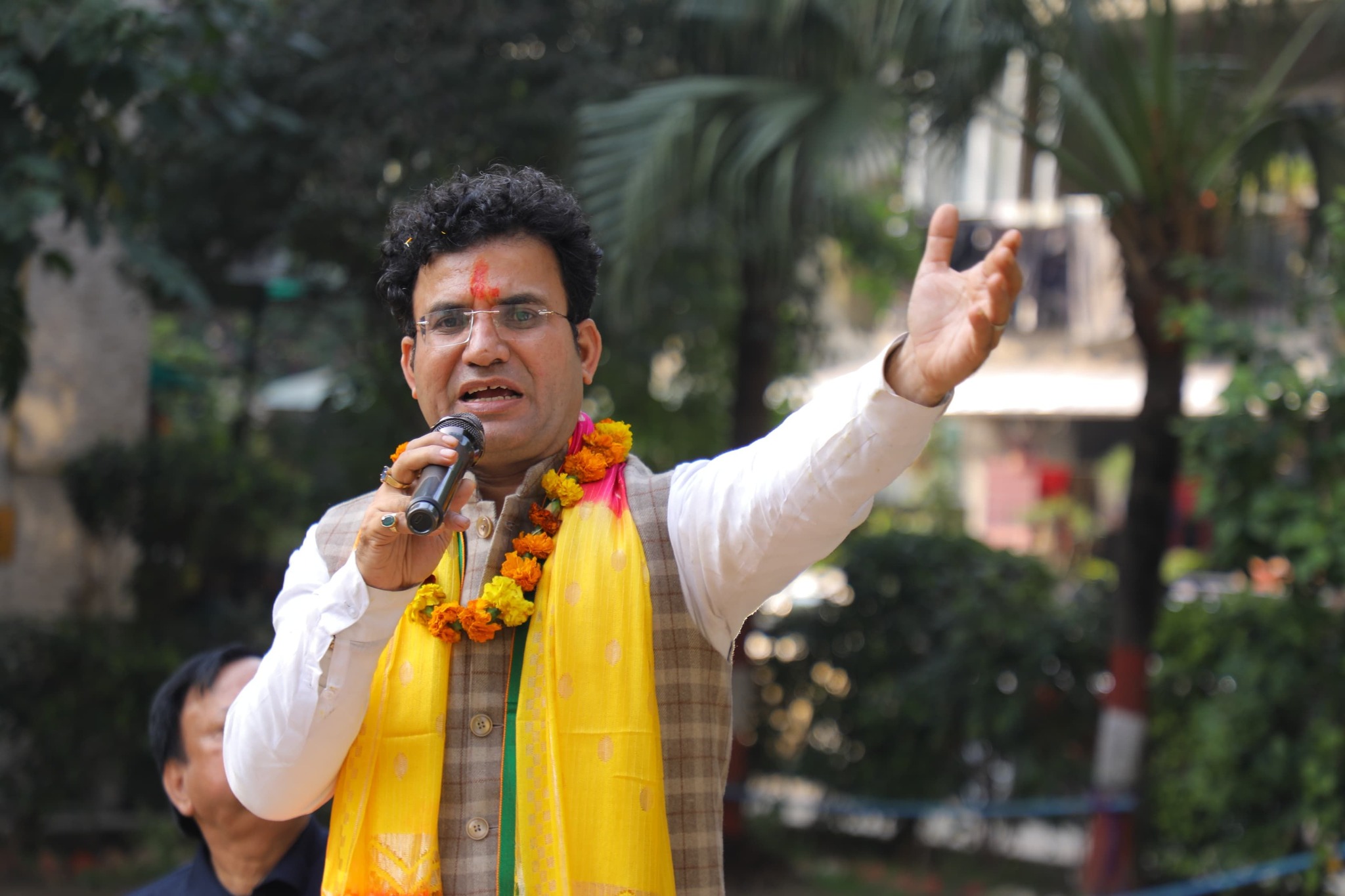Home > Profiles > Ravinder Singh Negi

Ravinder Singh Negi
Ravinder Singh Negi, a Bharatiya Janata Party (BJP) councillor representing the 198-Vinod Nagar (East) constituency, has become a controversial figure in East Delhi, especially in the Parpatganj area, where his actions have sparked a divisive atmosphere. A staunch advocate of Hindu nationalist ideology, Negi has consistently targeted local Muslim communities, particularly Muslim shopkeepers, through a series of contentious and communal actions. His moves are taking on disturbing shades of radicalization at the grassroots level where politics, religion, identity are used to build up divides.
A recent viral video exposed Negi’s attempt to impose a communal divide among local vendors. In the video, he is seen interacting with Muslim shopkeepers, demanding that they display their full names on store sign boards so that customers can easily identify who they are purchasing from. At the same time, Negi distributed saffron flags to Hindu vendors, urging them to proudly showcase their religious identity.
In May 2024, Negi made headlines with an inflammatory speech in East Delhi. This time, he urged women to vote in large numbers, claiming that Muslims vote in blocs. He painted the Lok Sabha elections as a fight between “Sanatan Dharam” and Muslims, stoking fears by warning, “Your homes will be distributed among Muslims.” His words weren’t just inflammatory—they were calculated to polarize voters and make the election feel like a battle for Hindu survival.
This isn’t the first time Negi has made waves with his controversial actions. Back during Navaratri, he raided meat shops in Delhi, forcing them to shut down. These stunts have become his trademark, each one reinforcing his radicalized views and pushing his divisive agenda further into the public eye.
His justification for targeting Muslim businesses is rooted in a communal narrative. He claimed that Hindu consumers were being deceived when they discovered that shops with Hindu names were actually owned by Muslims. “The people of my constituency complained that when they go to shops and pay online via UPI, they see Muslim names as account holders for shops that have Hindu names,” he told The Indian Express. This accusation, though unfounded and without legal backing, taps into a deep-seated mistrust, implying that Muslim shopkeepers are intentionally misleading Hindu customers. In reality, there are no laws in Delhi requiring the display of a shopkeeper’s name, making Negi’s actions not only divisive but unnecessary.
The impact of Negi’s actions is not just limited to local businesses. His campaigns represent a larger political agenda that seeks to sow division and promote religious identity politics at the grassroots level. For Muslims in East Delhi, Negi’s actions are a reminder of the rising tide of Hindu nationalism, where their businesses and identities are being scrutinized and challenged.
